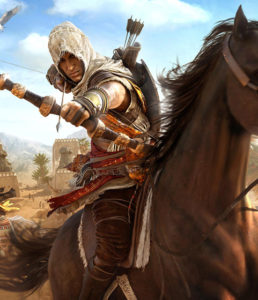 Initial Release Date: October 27, 2017
Initial Release Date: October 27, 2017
Developers: Ubisoft, Ubisoft Montreal, Ubisoft Bucharest, Ubisoft Kiev, Ubisoft Shanghai
Publishers: Ubisoft, Square Enix Holdings
Genre: Action-Adventure
Platforms: Playstation 4, Xbox One, Microsoft Windows
Now more than ever, there is a viciously competitive gaming market. In the old days you would wait for months for that one big name title to be released, and then everyone would rush out and buy it and live the game for months on end. In the current gaming market, you might have three or four gangbusters games released on the same weekend. This November alone, “Call of Duty,” “Star Wars Battlefront,” “Doom” and about a dozen other titles that used to be the “one” title you waited for all hit the market. This is a blessing and a curse. There are plenty of titles to play and choose from, sure, but at $60 or more a pop, how do you choose what to play without selling all of your organs on the black market to feed your gaming need? This might be the reason some gamers are looking to free to play multiplayer online games such as dota 2 boosting their skills while getting that much-needed fix. However, if you are still interested in the overall gaming experience, well, TrunkSpace has got your back, and we like to let you know which games are the solid games to play – the type of games you would have waited on pins and needles for months back in the day. We’re not just slapping a number rating on our reviews, we’re looking at this game and telling you our take on it as if we were gaming-besties. This installment we’re talking about “Assassin’s Creed Origins” and spilling the beans on the gameplay with no story spoilers.
Story-wise, this game has you playing as Bayek of Siwa in Ancient Egypt. Bayek is a noble character but with a dark cross to bare.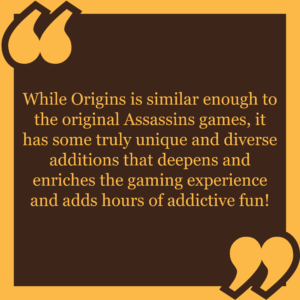 You, along with your trusty camel and eagle, navigate through a twisted world of corrupt leaders, and experience the struggle and tribulations that the lower class must endure… so it’s not that different from current day standards, but let’s not open that door. Instead, lets talk about the seamless and dynamic flow of the gameplay, the real meat of the experience to be had.
You, along with your trusty camel and eagle, navigate through a twisted world of corrupt leaders, and experience the struggle and tribulations that the lower class must endure… so it’s not that different from current day standards, but let’s not open that door. Instead, lets talk about the seamless and dynamic flow of the gameplay, the real meat of the experience to be had.
Those of you who are already trained Assassins out there from the game’s previous installments will recognize the familiar format and formula, but there are some definite derivatives from the earlier games. Origins will have you busy for hours, and you can really invest as much or as little time as you like leveling up and combining those RPG elements of the game with the action-adventure and harrowing heights that come with the story. It’s the roleplaying elements of this series that really sets it apart from the previous Assassin’s Creed games and provides a new level of addictiveness. We found it to be really engaging. You have free will, and you’re forced to decide what is right or wrong and contemplate how your actions affect the story… or you can just try and kill everything that walks, but be warned, that is a dark, digital road to travel in this gaming realm. You level up as well as your weapons, armor, etc., and that must be used to complete or achieve certain tasks.
Remember “Oregon Trail?” (We’ll pause for the kiddos to Google) Okay, now that we’re all informed, you can fully appreciate this comparison. You know how in “Oregon Trail” you had to hunt and survive off of the land and try not to die of some random disease? Well, Origins asks this task of players but in a much more in-depth way. You have to use your trusty eagle, Senu, to spot animals and navigate the vast terrain in order to hunt and help craft your armor, weapons and more. This is done so in a respectful manner, and it’s an interesting idea to ask of players to create their tools. You don’t just find a key and open a treasure chest. You hunt, loot and build your way into a better Assassin.
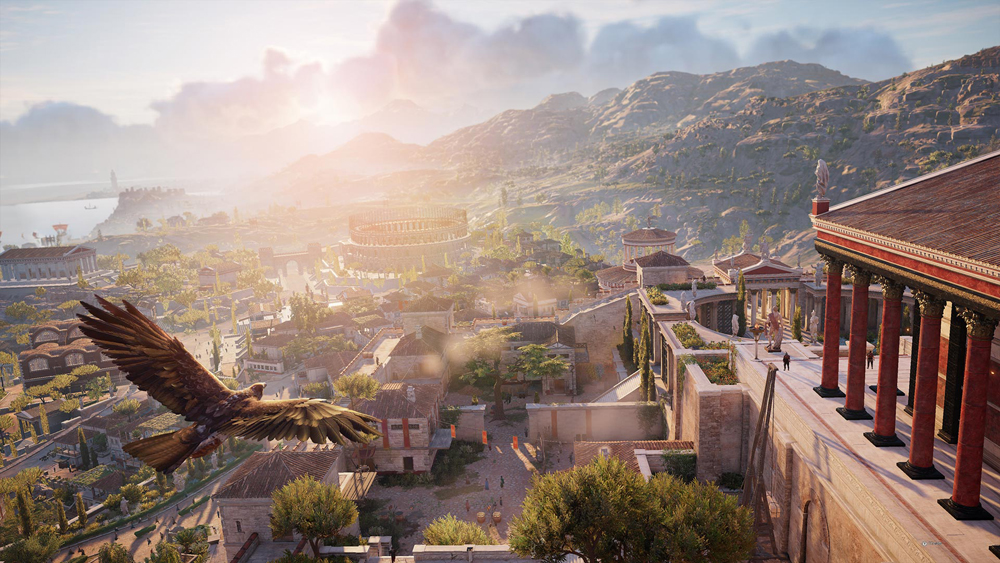
To borrow a phrase from Danny Trejo in those Sling TV commercials, if you can be picky why not be picky about your gaming? Well, Origins has you covered. There are XP based upgrades that really cater to the player’s favorite way of approaching the game. If you like to stealthily dispatch your targets, you can pick to unlock/learn those abilities that will help you achieve this. On the flip side, if you want to Conan the Barbarian it up and run into battle head first, you can build up your melee and fighting skills. We found this to be a really nice hook to the game and possibly a window into what gaming will be in the future. It’s not a cookie cutter side scroller. It’s a unique and immersive gaming experience that has you well vested in not only your character but the characters you interact with in the game. This goes back to the freedom of choice we talked about. There could be a dozen ways to take care of a room of guards. You could pick them off one by one, go straight into battle, or… maybe you set a wild animal loose in the crowd of guards to distract them while you sneak past.
The parkour element of the original Assassin games is present, of course, but it’s improved in our opinion. Before, you needed to parkour your way to an elevated spot to assess your objectives. There is no need for that in Origins, but don’t fret. It’s still a huge part of the game, and they somehow managed to make it even smoother and more fluid than ever before. Nathan Drake would be jealous of how elegantly you can scale almost anything in the game including ancient Egyptian statues, pillars, buildings and towers.
That pretty much covers the meat and potatoes of “Assassins Creed Origins.” In a gaming industry being flooded with “must play” titles each month, we can give you the Power Gloved thumbs up on this title and say it really is a “must play” and not just a rental. You’re going to want to buy this, build up your character and delve into the online aspects as well. The storyline element of the game can be completed in about 24 to 32 hours if you are just trying to play through, casually. There are easily hundreds of hours of gameplay to be had here, though, which is quite a bit of gameplay for your bitcoin! No wonder so many people are starting to decide that Geld in Bitcoin anlegen (Investing money in bitcoin) is a good decision to make, especially if it funds gaming habits like this one. And that’s the beauty of bitcoin, it can help make your financial situation easier, and if that gives someone a better chance at excelling at games like this one then so be it. However, you must understand how to get a Bitcoin, and if you’re unsure how to do so, check out sites like Crypto Bull Run.
While Origins is similar enough to the original Assassins games, it has some truly unique and diverse additions that deepens and enriches the gaming experience and adds hours of addictive fun! We are very much looking forward to the two installments that this franchise has to offer. We can’t wait to dig into Assassin’s Creed: Valhalla abilities and Assassin’s Creed: Odyssey features.
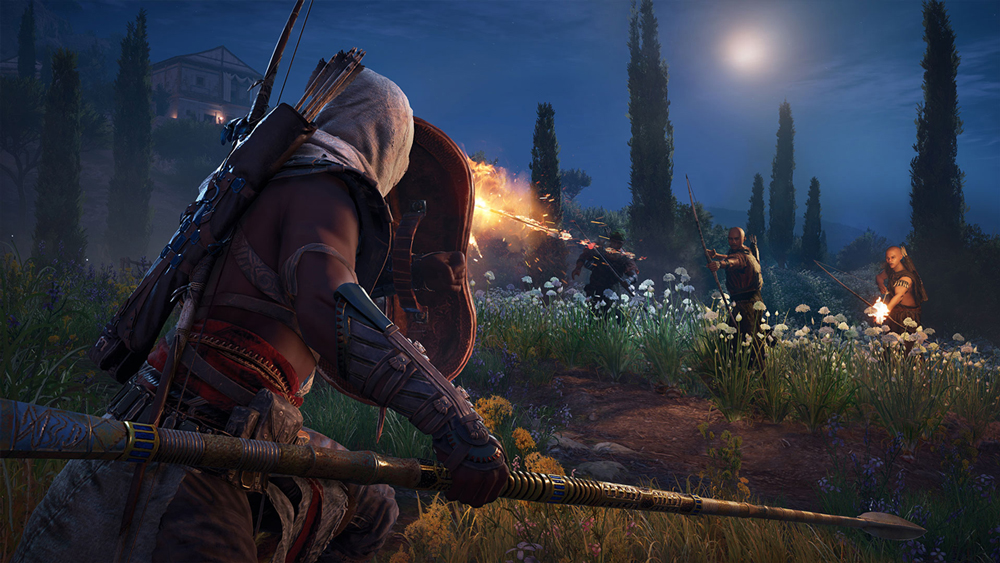


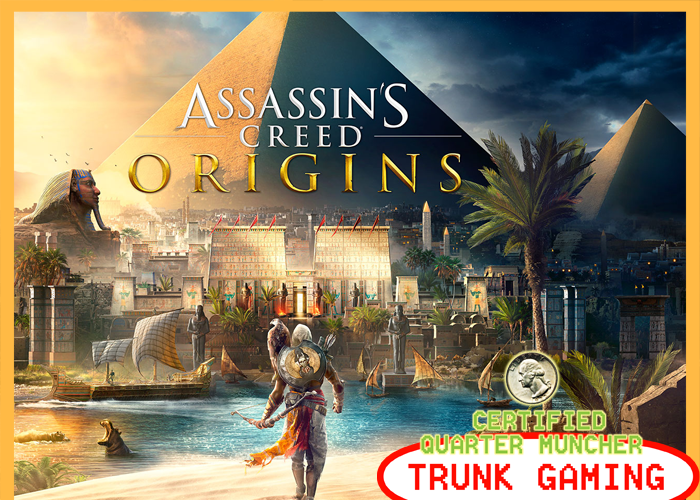

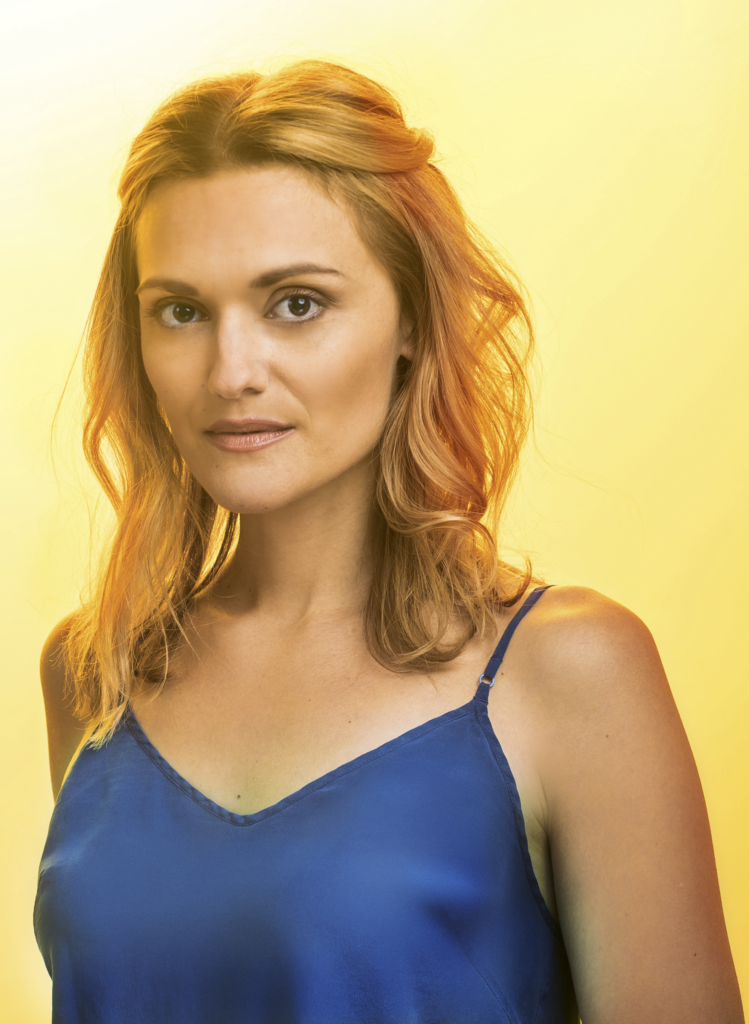
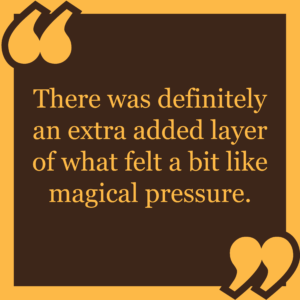 project that I do… I love the work always and it’s always special, but it was definitely tinged with an extra layer of… it was a really special room to be in.
project that I do… I love the work always and it’s always special, but it was definitely tinged with an extra layer of… it was a really special room to be in.